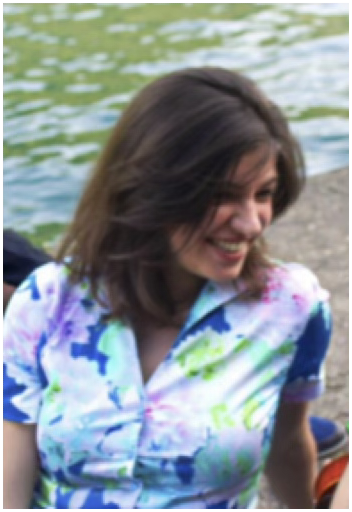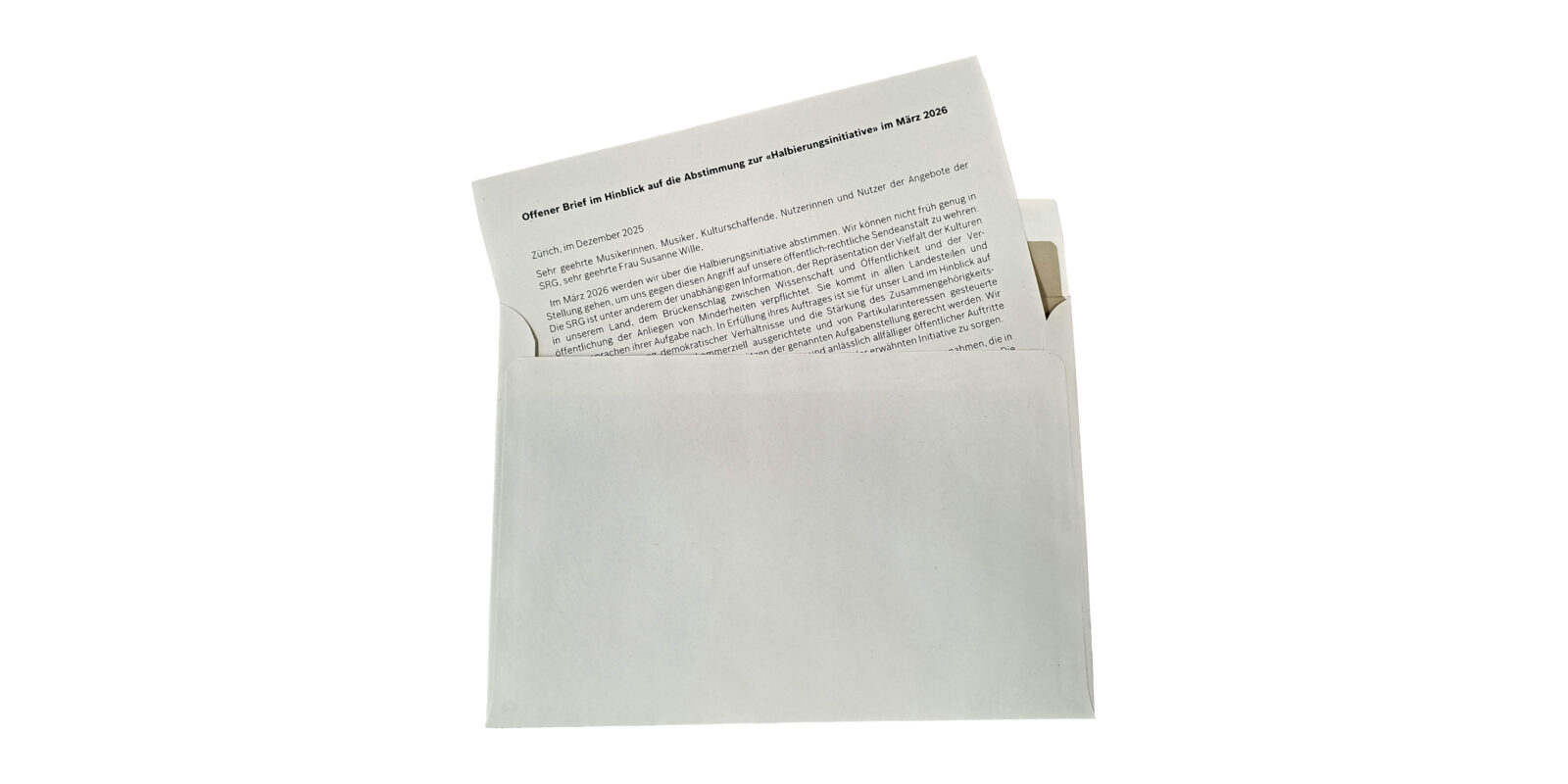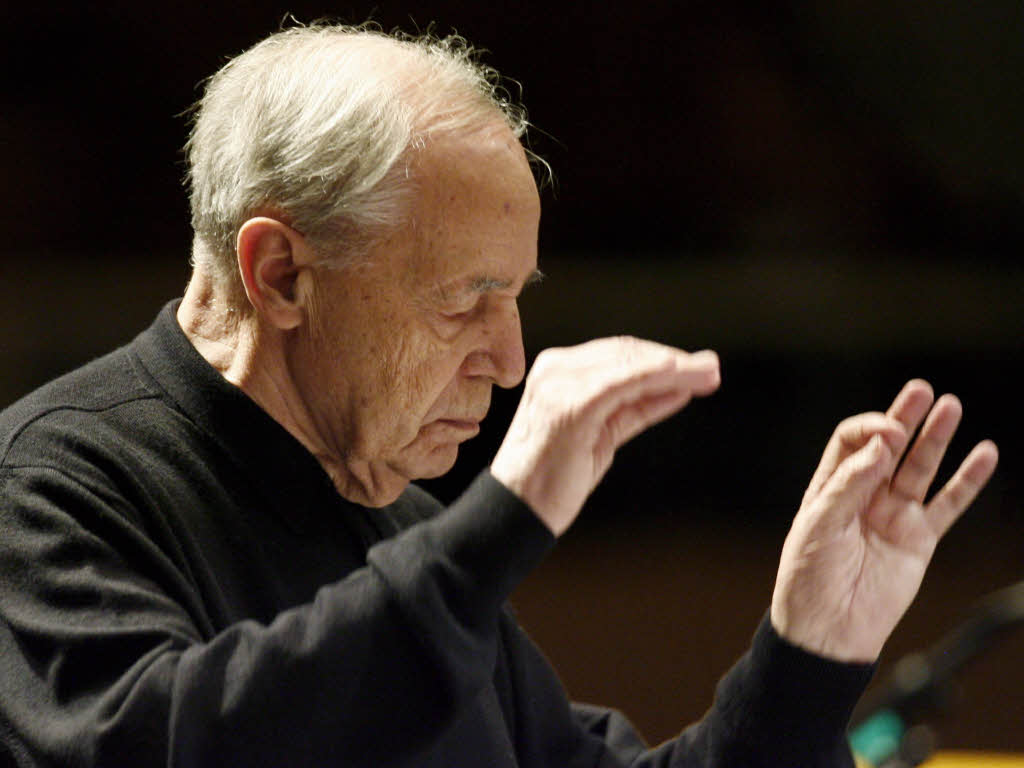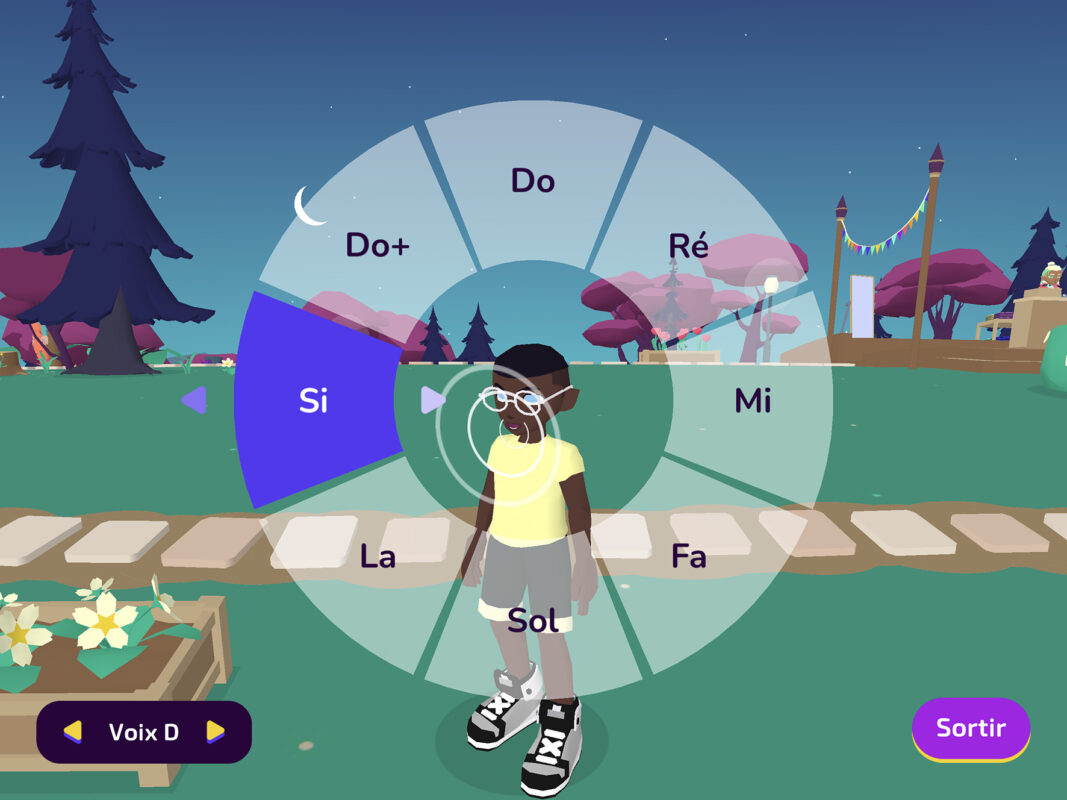"Lives of extraordinary musicians
Adele Posani's account of teaching music in Palestine. "Music as a massager of the soul, helping emotions to emerge, not to close down, to listen and communicate."
The interview I conducted in January is with Adele Posani, professor of flute, chamber music, music theory, brass ensemble and head of the brass department at the Edward Said National Conservatory of Music (ESNCM) in Palestine, at sites in Jerusalem, Bethlehem, Ramallah and Nablus. This interview took place during the truce in the war between Israel and Hamas, in January 2025.
Unfortunately, when the situation degenerated in recent months, Adele had to return to Italy, while continuing to maintain, as far as possible, contacts with musicians and students in Palestine.
After several increasingly dramatic phone calls over the last few years, I thought it would be useful to give a voice to the events and the challenge of making it possible to pursue musical studies, as a source of dialogue and culture between peoples.
Adele, on the other hand, has lived through these events and is experiencing them in her own skin, and tells us all about it in a way that is both passionate and detached, recounting the day-to-day of her work and her travels, allowing us to get an idea of what her work was (yes, because we don't know today what will remain of all that she recounts).
I first met Adele Posani in 2014 at the Conservatorio della Svizzera Italiana in Lugano, where she was my colleague for 3 years on the "Chamber Music with Methodology and Practice" course.
From the outset, she revealed herself to be a lively musician-flautist, interested in everything new and unconventional about music as a quest for self and a role in society, and in the possible pedagogical paths it could offer.
After successfully completing her academic studies, she moved to South America (Bolivia) and then, between 2015 and 2020, won the competition for the Edward Said National Conservatory of Music (ESNCM). Since 2020, she has been a flute teacher at the Barenboim Said Academy in Ramallah, Palestine.
Adele Posani, could you summarize for us how music teaching was organized in "Palestinian territory" before the outbreak of the new war on October 7, 2023?
I should point out that I have never been to the Gaza Strip, as it became very difficult to obtain permits after Operation Protective Edge in the summer of 2014, and I arrived in Palestine in September 2015. As far as the West Bank is concerned, I can say that the main music schools that also, or exclusively, teach classical music are the Edward Said National Conservatory of Music, the Barenboim Said Foundation, Kamandjati, the Sounds of Palestine association. There's also Amwaj, a choir of white voices operating mainly in Hebron and Bethlehem.
What kinds of music are taught?
In addition to the conservatory, there are many other music schools where Arabic music is taught: the oud, the tabla or percussion in general, the buzuq, the qanoun, the nay, singing, but also the clarinet, very present in Arabic music, and the violin, which is tuned in G3, D4, G4, D5.
These schools are smaller and less well-known than those I mentioned earlier, but they obviously play a crucial role in keeping the Palestinian musical tradition alive.
Traditional music and traditional dance, the Dabke, are in great demand at all kinds of ceremonies, weddings, engagements and other celebrations, including for celebrities returning home from prison.
As far as classical music teaching is concerned, the ESNCM (Edward Said National Conservatory of Music) is undoubtedly the best-established musical institution in the territory. Until 2020, it had five main sites (Jerusalem, Bethlehem, Ramallah, Nablus, Gaza), plus a structure in Birzeit, a village where the largest university in Palestine is located, where the biggest projects took place, and in addition, it organized what were called "outreach programs" where some instrument teachers went to Hebron, Jericho, Jenin to carry out pedagogical music activities or even regular instrument lessons.
From what I've seen personally, and from the accounts of my colleagues who were there before I arrived, I can say that this institution worked very well between 2010 and 2020.
At first sight, it seems rather complex to organize such an extensive system. How does it work?
Obviously, having worked there for 5 years on a full-time basis with very intense work rhythms, I also know the problems that afflicted this school, both internal and external. The internal problems were organizational, communication, interpersonal and other, due to the fact that the institution had a small administrative staff, while the academic staff was imposing, made up of Palestinians and foreigners from various parts of the world (many Europeans, but also Australians, Russians, South Americans), for a total of some fifty professors spread over five different sites.
We were teaching different styles of music, in different languages, and we had to discuss a wide variety of details, such as the orchestral repertoire or the attendance registration system. I think anyone who has worked in a school environment can imagine the problems this can cause.
As for the logistical problems, I think it's hard to imagine from here what it means to manage an institution of this size, spread over a territory under military occupation.
How did you get around?
To give an example: access to the Jerusalem site, although it's in the heart of East Jerusalem, a stone's throw from Damascus Gate and Salah al-Din Street, given that the whole city is under Israeli control, with a de facto annexation, it's illegal for most teachers living in the West Bank to access it.
This means, for example, that if a qanun teacher comes from Bethlehem, and there's a qanun class without a teacher in Jerusalem, that teacher can't travel to Jerusalem to cover that class, simply because he doesn't have the permit to pass through the checkpoint.

How has the displacement situation changed since your arrival in Palestine?
For the first two years, I also taught on the Jerusalem site, two days a week, then from 2017, Israel stopped issuing visas to access Jerusalem and the same procedure that in previous years had allowed me to obtain a visa to cross the checkpoints, suddenly confined me to the West Bank. So I had to stop teaching in Jerusalem.
Gradually, it became more and more difficult to obtain visas and permits even for internationals: at first, it was enough to renew the tourist visa simply by leaving and entering the country, then this became risky as you risked a ten-year ban on entering the country; before, a letter from your consulate would allow you to obtain a multiple-entry visa, then this became a residence permit only for the West Bank, which expires as soon as you leave the country. These are the problems you face after finding a musician willing to work in such a difficult place, which is not an easy task in itself. Educational continuity? Impossible.
And what happened during the Covid?
With Covid and restrictions on international travel, the situation for the Conservatoire got worse, all the exchanges that were taking place during projects were interrupted, then in 2021 there was Operation "Guardians of the Walls" (May-June) and from then on the situation was a crescendo of tensions, which eventually led to the war we see today.
What happened to the orchestral, chamber music and other projects?
As a result of the restrictions, there has been no opportunity, even for a school like ESNCM, to resume projects as before. However, similar problems are encountered in all other schools: they are suffering from the limitations imposed by the occupation in various forms.
Even for the Barenboim-Said Foundation?
Yes, although it began with the West-Eastern Divan Orchestra, an orchestra made up of Israeli and Palestinian musicians, it is now a music school based in Ramallah, where only Western classical music is taught.
However, the Foundation still presents itself as the only bridge for young Palestinian musicians wishing to pursue a musical career and study in Europe, being well connected with the Barenboim Said Academy in Berlin and the Barenboim Said Foundation in Seville. There are also Kamandjati and Sounds of Palestine, schools that focus more on outreach than high-level training, but which also seek to run "awareness programs".
At the various sites where you worked for the Edward Said National Conservatory of Music, several styles of music are taught, among which "Western" classical music is just one of the many genres represented. How did you feel in this environment, which I assume was very stimulating?
Yes, we teach both Western classical music and Arabic music. In music theory classes, both are taught, and the repertoire for ensemble activities (brass ensemble, string orchestra, symphony orchestra and choir) is almost always mixed, or depends on who is running the ensemble.
It's easy to get in touch with Arabic music, the instrumental part, especially with the flute, is very intuitive, apart from a few limitations for quarter tones, and we mostly play songs with a recognizable structure.
The singers, from professionals to students, were the ones who impressed me the most: the expressive search for the voice in Arab music is very different from that of Western music, and I remained fascinated by it.
Almost in every situation, in every group of friends, of any age, there will always be someone who sings, who enjoys singing for others, and this creates many opportunities to listen to the aesthetics of the voice (especially for those who don't understand the text).
Have you had to adapt or broaden your knowledge and possibly your musical training since coming into contact with these different genres?
In retrospect, I feel I didn't learn enough, that I could have gone much deeper. I listened to a lot of Arabic music, both in concert and by listening to the great classics, such as Fayruz or the Jubran Trio, mainly out of curiosity, more than necessity. More than anything, I've played and taught Arabic music in the field, individually or in ensembles, and that's how I've learned and integrated my knowledge, in the way that seems most natural to me.
How has your communication with students and in your daily life evolved over the years, in relation to languages and culture?
I studied Arabic for a few months, but I have to admit that it's a pretty difficult language and I didn't have the perseverance. However, communication was never particularly difficult with the students, except when we switched to online teaching during the pandemic. In that case, having cancelled out almost all other forms of non-verbal communication, language became a much more important factor.
As for daily life, I gradually learned the Arabic I needed and kept on learning. What's more, in Ramallah, I think more than anywhere else in Palestine (apart from Bethlehem because of tourism), most people speak English well enough to be able to communicate.
What aspect of life and culture in the Middle East has most "attracted" you?
As far as the cultural aspect is concerned, I can say that one of the experiences that brought me closest to the students was practicing Ramadan, fasting until sunset for 30 days: it's a very gratifying experience, sharing suffering, stoicism and the satisfaction of drinking and eating together at the end of the day.
Are there any places where the instruments seen in the videos you sent me before 2023 have been protected from the current destruction (January 2025)?
I'm not sure, but I don't think so. It seems that the Gaza site was hit, but not completely destroyed.
I don't know what happened to the instruments, I think they're still there, but in what condition, we can't tell.
We have to wait until someone can access it safely to check.
And if there are still instruments in repairable condition, how will they be repaired?
And if they fix them, where are they going to put them?
Not in the tents, that's for sure!
I don't think it's easy to realize just how many logistical problems the devastation has caused.
Unfortunately, I'm afraid that even those instruments that could be saved, with no place to store them and no place to maintain them, don't have much hope. If we have to wait for the rubble to be cleared before accessing the pianos, I'm afraid it'll be too late.
These days (early January 2025), there's talk of a two-week truce, which everyone hopes will be followed by a definitive ceasefire (!). After all this destruction, do you think there's anything left alive, people who could contribute to rebuilding Palestine, who would still support the utopia of peace, at least by making music together?
Meanwhile, during these months of war, music continued to be played in Gaza.
In Khan Younis, a sizeable group of Conservatory teachers formed, and they started group activities, mainly singing, although, from the videos I've seen, they only had a guitar, a violin and a few ouds (Arabic lutes). It just goes to show that the desire to make music can't die; as long as there are people, there's music.
I don't know what peace means in this land, I don't know what it could mean in this context.
However, I believe that during and after great traumas, music is the soul massager, the one that helps to release emotions, not to close up, to listen and to communicate.
So I think music will be essential, but I don't dare predict anything about Gaza's future, because I don't think I'll be able to grasp the scale of the destruction.
Do you plan to continue your work in Palestine if and when it becomes possible again? Or would you rather create something in Italy? Or leave for new projects elsewhere?
For the time being, I'm thinking of staying in Italy, of course with some form of integration, although I'm still trying to figure out what that is. I've had some very different experiences in Palestine and I know that I like and am interested in working with children and teenagers, especially in groups, and I'd like to try and integrate these experiences into a similar project in Italy.
Thank you, Adele, for your passionate account!
Thank you very much!
Note by Omar Zoboli.
I notice now that the verb tense in this interview constantly jumps from the present to the imperfect: this signal shows just how difficult it is to maintain a stable present (at least temporarily) in such a precarious living situation, and above all how much the present and the past creep into every perception of the daily moment.
Adele Posani

...was born in Rome in 1988. She began studying the flute in secondary school, and then enrolled at the Conservatorio d'Aquila "A. Casella" Conservatory in Aquila, graduating under the guidance of M° Paolo Rossi.
She then took part in Masterclasses with masters such as Oliva, Tabballione, Boghino, Riolo, Ancillotti, Pretto, Persichilli, Wye, Rien de Reede, Thies Roorda, Campitelli, Bennett.
She completed the Biennium of Specialization in Flute at the "G. Frescobaldi" Conservatory in Ferrara, where she graduated with top honors in February 2013. She then went on to brilliantly complete a Master of Arts in Music Pedagogy (2014) and a Master of Arts in Music Performance (2015) at the Conservatorio della Svizzera Italiana under the direction of M° Mario Ancillotti.
As principal flutist, she has also collaborated with the Orchestra of the Conservatory of Italian Switzerland, the Orchestra of the Conservatory of Ferrara and the Ticino Brass Orchestra, under conductors such as M° Veleno, M° Neschling, M° Verbitzky and M° Venzago.
She plays with the trio Nuove Triospettive (first Swiss performance of A. Portera's "Algoritmo Intuitivo" trio) and with guitarist Pedro López de la Osa, with whom she won the Santiago de Compostela Chamber Music Prize, and with whom she has given concerts in Italy, Spain and Palestine.
Between 2015 and 2020, she was a teacher of flute, chamber music, music theory, brass ensemble and head of the brass department at the Edward Said National Conservatory of Music (ESNCM) in Palestine, at sites in Jerusalem, Bethlehem, Ramallah and Nablus. Since 2020, she has been flute teacher at the Barenboim Said Academy in Ramallah, Palestine.








